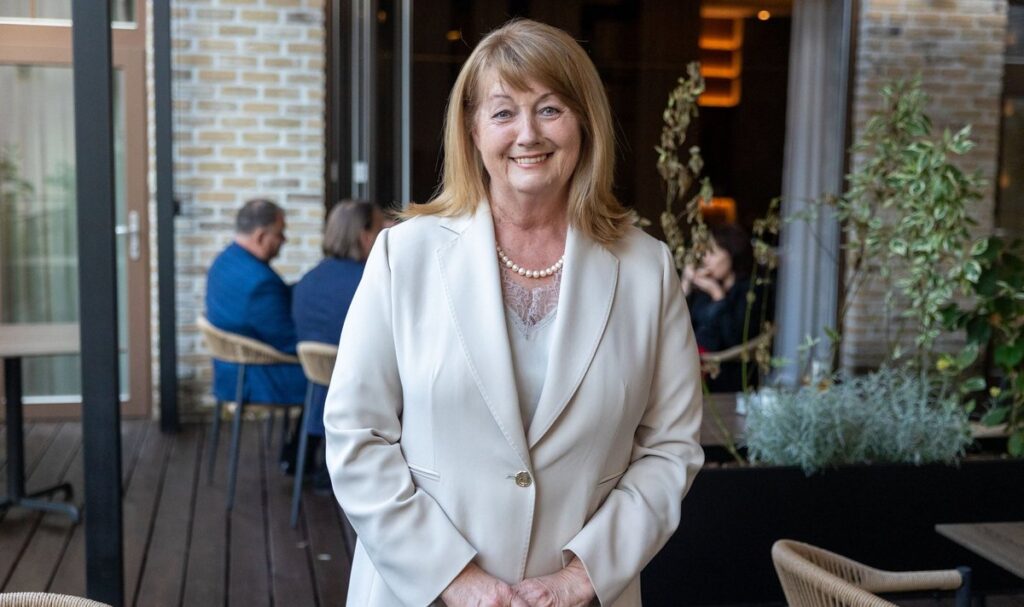Following a decisive victory in Sunday’s parliamentary elections, the leader of Lithuania’s opposition Social Democratic Party, Vilija Blinkevičiūtė, has committed to enhancing the country’s defense spending to confront the potential threat from Russia. Blinkevičiūtė stated that the party’s manifesto mandates spending at least 3.5% of GDP on security measures.
The Social Democrats secured 52 out of 141 seats in the parliament, emphasizing their commitment to defense amid rising fears of a Russian invasion among the Lithuanian populace. Polls indicate that up to 75% of Lithuania’s 2.8 million residents believe the country could be a target for aggression.
Lithuania shares a 179-mile (275 km) border with Russia and has been a staunch ally of Ukraine, consistently criticizing Moscow under the outgoing conservative government. Blinkevičiūtė affirmed that this position would remain unchanged.
Currently, Lithuania ranks among NATO’s top defense spenders, allocating around 3% of its GDP to military expenditures. The country is also recognized for its substantial support to Ukraine relative to its economic size, according to Germany’s Kiel Institute.
With a coalition likely needed for governance, the Social Democrats are expected to negotiate partnerships with the centre-left Union of Democrats “For Lithuania” and the Lithuanian Farmers and Greens Union. The outgoing government, led by the centre-right Homeland Union – Lithuanian Christian Democrats, garnered 28 seats, and its leader, Foreign Minister Gabrielius Landsbergis, resigned shortly after the results.
Analysts warn that the proposed three-party coalition, which would hold a narrow majority of 74 seats, might struggle without the backing of the newly formed nationalist party, Nemunas Dawn, which won 20 seats. However, the Social Democrats have dismissed any possibility of collaboration with Nemunas Dawn, led by Remigijus Zemaitaitis, who is facing trial for inciting hatred following controversial remarks.
In a parallel development, Bulgaria held its seventh parliamentary election in four years on the same day. Provisional results indicated that the centre-right GERB party, led by former Prime Minister Boyko Borissov, finished first with 26.5% of the vote. Despite this, Bulgaria remains in political limbo, struggling to establish a stable government following widespread anti-corruption protests in 2020 that led to the downfall of Borissov’s administration.
The reformist coalition We Continue the Change secured second place with 14.7% of the vote, while the ultra-nationalist, pro-Russian Vazrazhdane party closely followed with 13.5%. Borissov described his win as “categorical” and expressed willingness to collaborate with other parties, except for Vazrazhdane.
Political fragmentation in Bulgaria poses significant challenges for forming a coalition in a parliament comprising nine different parties. This uncertainty has hindered the allocation of essential EU funds for infrastructure improvements and has delayed the country’s plans to join the eurozone.
Voter turnout slightly increased to 38% from 34% in the previous election, but about 60% of Bulgarians expressed serious concern over the ongoing political deadlock. Official results are anticipated in the coming days, but if confirmed, Borissov may face yet another challenge in assembling a government, raising the specter of another election.
